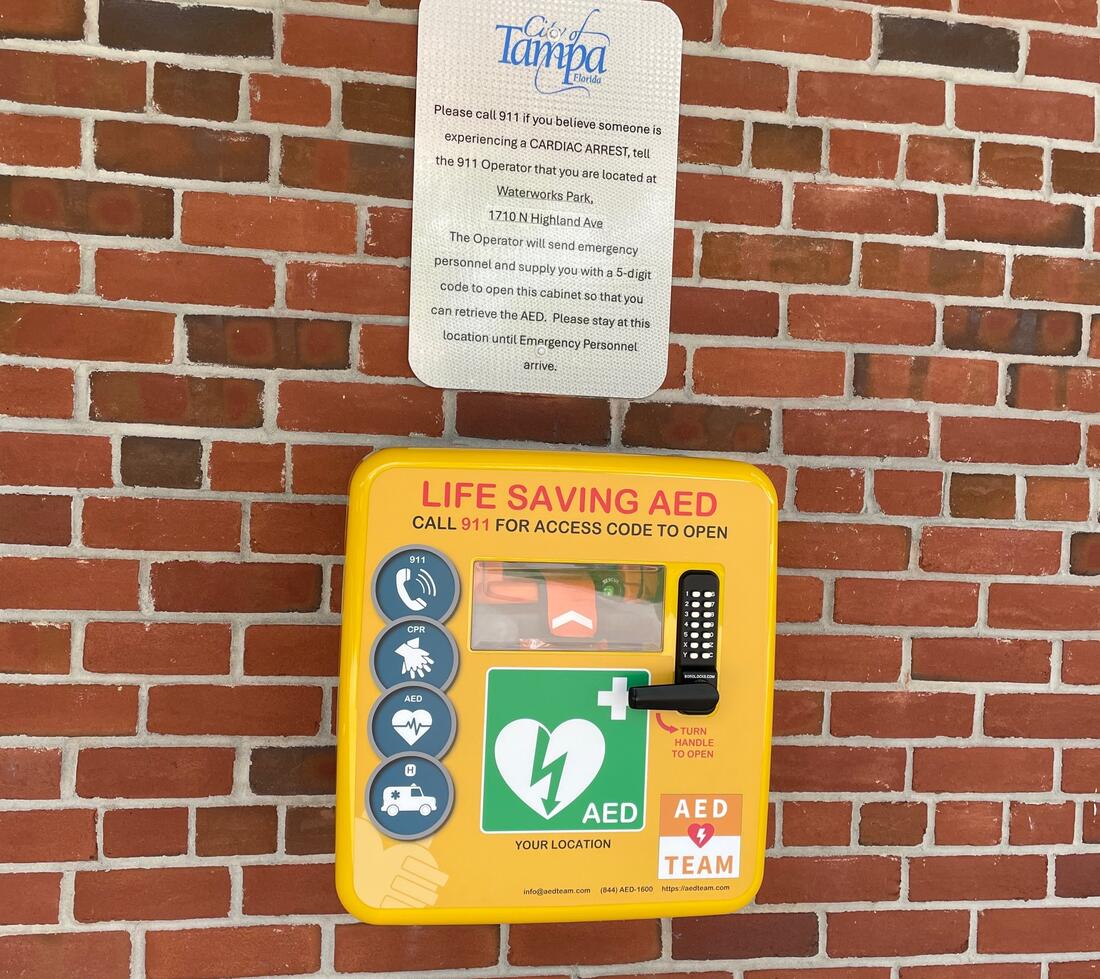Thanks to grants from the American Heart Association and Tampa General Hospital, the City of Tampa has acquired 39 Automated External Defibrillators, and has deployed these AEDs across the city.
The grants have already saved a life. An AED installed in the Tampa Convention Center on August 13, 2025, was used to save the life of a visitor less than two weeks later, on August 26.
The Convention Center had seven AEDs already, but not one in that location on the registration floor.
“Knowing that every minute of non-assistance after a cardiac event decreases the chance of survival by 10%, the new defibrillator played the key role in the life-saving outcome,” Mayor Jane Castor said. “We cannot thank the American Heart Association enough for its major contribution to our efforts to be prepared to save lives.”
The City of Tampa began installing defibrillators in its buildings in 2005, under the direction of Safety Training Specialist Larry Frassrand. The City started with 13 units. It’s now up to 201, all of which are connected to the 911 system.
Thirty-seven of the defibrillators were funded by a $70,000 grant from the American Heart Association. Tampa General Hospital paid for an additional two public access AEDs. One is at Water Works Park, and the other is at Palma Ceia Little League. In the event of a cardiac emergency, a 911 operator would give the caller the code to access the defibrillator.
“This life-saving device is one of 10 AEDs generously supported by Tampa General Hospital, helping strengthen the Chain of Survival across our community,” American Heart Association Vice Presisdent Courtney Burt said. “Public-access AEDs play a critical role in improving survival rates from out-of-hospital cardiac arrest. When an AED is used alongside high-quality CPR, a person’s chance of survival can increase dramatically, to as high as 50–70% in some cases.”
Of the 39 new AEDs that the City was able to purchase through these grants, 37 have been installed. The two remaining AEDs will be installed in the next several weeks at the new Fair Oaks Recreation Complex.
Parks & Recreation requires all staffers who interact with the public to be certified in CPR and AED use. The department received 25 of the new defibrillators, with the remaining AEDs assigned to six other departments. Several of the AEDs are portable and can be brought to locations where events are being held.

